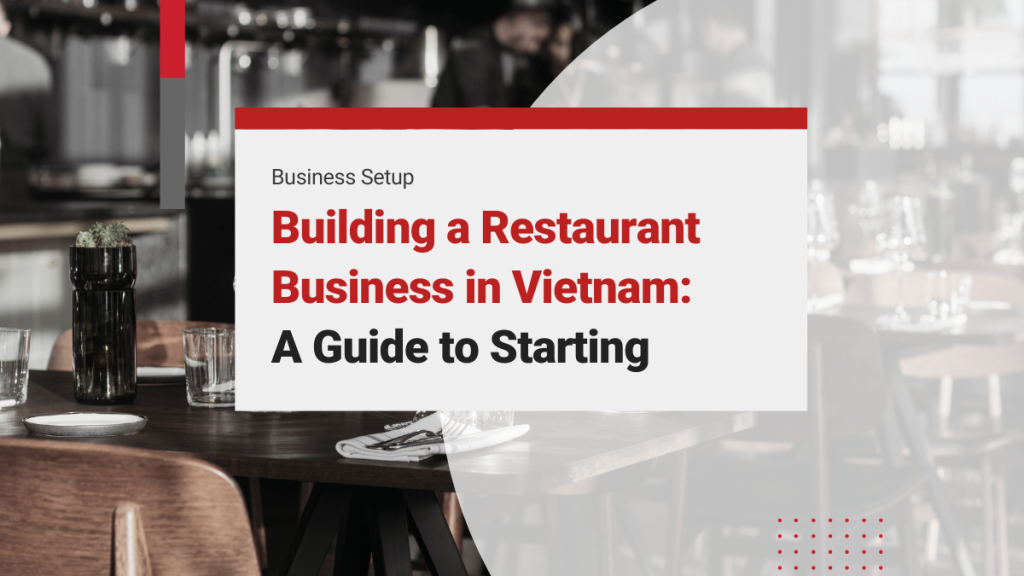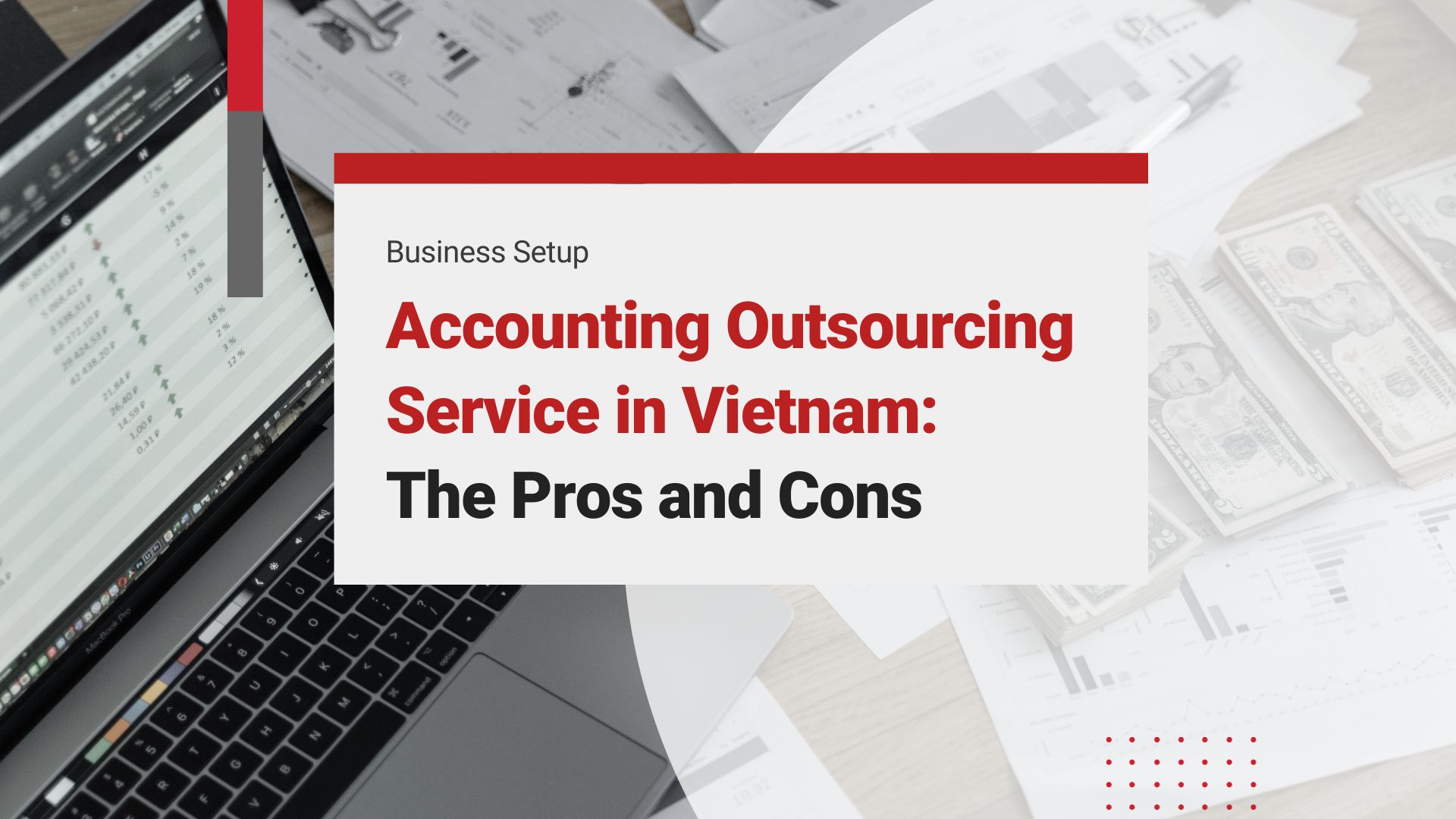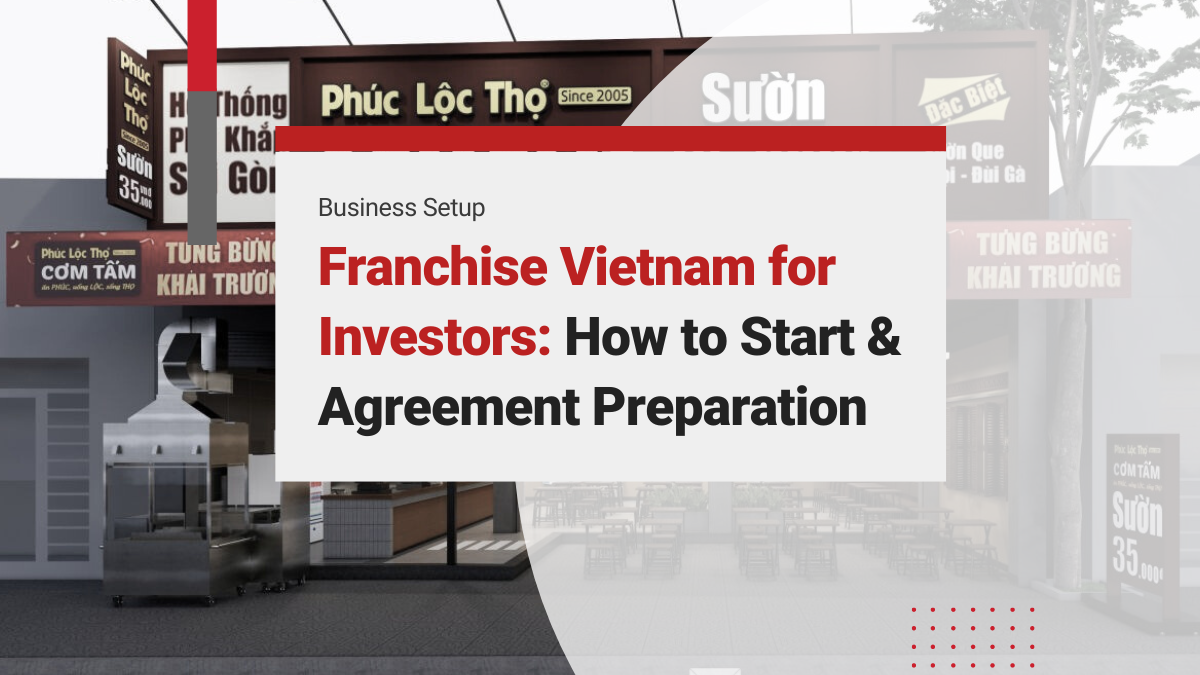Vietnam is the ideal destination to start a restaurant business, as the country has a rich culinary history coupled with easy access to labor. Recently, many restaurants in Vietnam have gained global recognition as they received international awards. The restaurant industry is benefiting from the influx of foreign chefs trained in unique food ideas, which has caused a boom in this sector.
Meanwhile, the ever-increasing middle-class population of Vietnam is causing unprecedented growth in the industry. The food service industry is growing at 8.5% CAGR in 2022-2027, and foreigners can open a 100% foreign-owned business in this sector.
All these make it an ideal time to start a restaurant business in Vietnam. However, before you take the plunge, it is important to know how to brand a restaurant and how to control the labor costs in a restaurant. Opening a restaurant can burn a hole in your pocket if you do not take into account the restraints you might face.
While there are many options to set up a business in the food industry, like cafes, F&B retail stores, fast food chains, catering services, etc., a pop-up restaurant business plan is the best place to start because of the thriving tourism in Vietnam. As of 2022, there are 550,000 F&B businesses in Vietnam, of which 82,000 are fast food restaurants, as per statistics given by the Vietnam Cuisine Culture Association.
Starting a Restaurant Business in Vietnam? Check out InCorp Vietnam’s Incorporation Services in Vietnam
In this article, InCorp Vietnam has given a thorough insight into starting and running a restaurant for dummies, including the regulations to follow, ways to do it, and tips to make it successful.
Regulations for Restaurant Business in Vietnam
Foreign entrepreneurs and chefs looking to leverage the popularity of Vietnamese food in the world should take cognizance of the various regulations before they start a restaurant. All food and beverage businesses have to comply with the Company Law and the Food Law set by the Vietnamese government.
While the Company Law gives you the necessary guidelines you need to follow, including how to register the restaurant business, the Food Law ensures you have the licenses to do it. As per Vietnamese law, the following requirements must be fulfilled before opening a restaurant in the country.
- Submit documents to get the operational licenses and permits.
- Ensure what kinds of food and beverage items are made, stored, and sold by the restaurant.
- Ensure that all health and food quality standards have been followed while making and selling the products.
- Ensure that the staff at your establishment follows the hygiene and safety standards demarcated by the government.
Now, before you get into the details of how to run a franchise restaurant in Vietnam or even open a restaurant business, you need to be aware of various licensing requirements and tax compliance.
All food businesses require certain essential licenses like the Investment Registration Certificate (IRC) and the Enterprise Registration Certificate (ERC). The IRC issued by the Department of Planning and Investment (DPI) validates the investments the business receives, allowing it to run as a foreign-owned company.
Whereas the ERC issued by the Business Registration Office formally establishes your restaurant in the country. Additionally, a Food Safety Certificate issued by the Department of Health is required to ascertain that the restaurant follows all safety and hygiene protocols as the food handling practices and the kitchen facilities are found in order by food safety inspectors.
Some restaurants might need additional permits like an alcohol beverage license, signage permit, outdoor seating permit, local business license etc. based on their operational requirements. While the business license ensures that your floor plans and lease agreements are suitable to run a restaurant business in a specific locality, signage and outdoor seating permits allow signage and outside seating arrangements. The Department of Industry and Trade-issued alcohol beverage license gives a restaurant permission to serve alcohol.
Read More:
- Your Easy Guide to Obtaining an Investment Registration Certificate (IRC) in Vietnam
- Required Business Registration Certificates (ERC) in Vietnam for Company Formation
Ways to Start a Restaurant Business in Vietnam
There are certain ways of starting and running a restaurant for dummies. You can either establish a completely new business or acquire one through merger and acquisition (M&A). Either way, it is crucial to know the different business models available in Vietnam and choose the one that is right for your restaurant.
Foreign entrepreneurs looking to set up a restaurant business in Vietnam often go for the following options depending on how much control they need over the establishment, operational flexibility, and taxation issues.
- Limited Liability Company (LLC): This is the most sought-after choice amongst foreign investors as the personal assets of the owners are protected from liabilities and debts while allowing them to own property, hire employees, or sign contracts as per their will. However, despite 100% foreign ownership, the US$10,000 capital requirements and the complex procedure to set up an LLC often deter people.
- Representative Office (RO): If you want a quick and hassle-free option to set up a restaurant business in Vietnam, then go for an RO. It is good for those who are just exploring opportunities and not looking to generate revenue instantly.
While an RO can not indulge in revenue-generating commercial activities, it can build relations with partners and suppliers and do market research. However, it has a limited long-term viability in this sector and must be converted into other business models after a period.
- Joint Venture Company (JVC): This kind of business model is most advantageous for foreign investors, as they can gain access to the Vietnamese market by partnering with a local establishment. This ensures a hassle-free bureaucratic process where licenses and permits can be obtained easily while you get ample market insights. However, JVCs have complications like disagreements between partners, profit distribution, and decision-making issues.
Ultimately, the most suitable business model depends on things like investment, partnership, and scale of operations. It should align with your long-term business goals and meet your specific needs.
For those who want local expertise and connections to build up their business, JVC is the best option as long as the partner aligns with your restaurant management style and concept. If you want low or minimum investments, then go for LLCs but chalk out long-term investment plans. Meanwhile, for those looking to start from scratch and build up with proper market research, an RO is the ideal way.
Starting and Running a Restaurant for Dummies in Vietnam
There is a clear path of action for starting and running a restaurant for dummies in Vietnam, which includes the following steps:
Understanding the Types of Restaurants
The first step is to understand the different types of restaurants. This can be based on your target audience, like hot pots for office workers and students, wedding banquets for weddings and other such ceremonies, and buffet restaurants for large-scale corporate events. It can also be determined by the food variety you want to serve, like seafood and vegetarian restaurants.
Identifying the Target Market
Once you understand the types of restaurants, the next step is to determine your target customers after thorough market research. Pick a target market that has at least 5-10% similarity with your business concept. Then determine your basic customer base depending on interests, income, age, and preference for a type of restaurant. You must also identify competitors—both direct and indirect ones—after careful market analysis.
Read Related: Top 8 Market Research Companies to Conduct in Vietnam – 2024 Update
Draw up a Budget and Investment Plan
The third step is most crucial for running a successful business, as it determines your profits and revenue. So, before starting up a restaurant business, draw up a detailed budget plan after analyzing your expenses like furniture purchases, utility bills, equipment and inventory costs, staff salaries, design expenditures, etc. The determining factor in this is the rent of the place. Once you are aware of the expenses, you can allocate funds accordingly and also seek investments and funding opportunities.
Deciding the Location
Success in this business is maximized by location. Hence, you need to find the ideal location based on your target customers, your size and space requirements, rental costs, relationship with the landlord, and lease agreement. Before zeroing a location, conduct a full survey to understand the competition in the locality, the habits, preferences, and way of living of the people in the area, and the business environment.
Avoid locations that do not align with your target market, including the areas they do not visit often. Also check the foot traffic in the locality, as it ensures a high number of people visiting the area.
Well-ventilated, spacious places that align with your creative and aesthetic senses are good for your restaurant. Consider parking spaces, floor space utilization, drainage system, and customer seating arrangements before renting a place for your business. Additionally, look for spaces with affordable renting costs even if they are not in prime locations to balance the target audience with financial constraints.
Having a good relationship with your landlord is also key to long-term success, and hence finding real-estate owners with a cooperative attitude and good reputation is essential. Also, ensure your leasing agreement prevents rent increases and allows repairs along with compensation when you hand over the property. Short-term leases for 2 years are the ideal to start with before you fully commit to it.
Read More: Choosing the Ideal Business Location in Vietnam: The First Step of Success
Proper Designing of the Space
Restaurants perform well when their design aligns with their utility. Hence, the design of the dining areas, the decorations and furniture selection, and the seating arrangements all need to be in order. Make sure your restaurant has a good color scheme and lighting along with other aesthetics. It should not look like a cramped-up space but a comfortable place to hang out with friends and family.
Setting up the Equipment and Infrastructure
The last step of starting a restaurant business is to ensure that all infrastructure and equipment are in place. This includes an error-free ordering system and fast and accurate payment systems. Make sure your kitchen, reception, dining area, parking space, etc. meet industry standards while allowing for creativity and customer satisfaction.
While reception areas should be lit with adequate lighting and signage, the parking lot should be accessible and not obstructed by other construction. Ensure the service area has an adequate number of beverage and cashier counters along with table arrangements. Meanwhile, the kitchen should have gas safety and odor removal features along with an oil and grease filtration system and proper drainage mechanisms. The kitchen area must be designed based on one-way yardsticks to avoid food safety issues.
Additionally, take care of the processing and the guest area as they ensure smooth operations. While the processing area should have enough space to store cookware and ingredients and allow for dishwashing, the guest area needs to reflect customer and service team preferences.
Creating an Interesting Menu
The last step is to create a viable menu that attracts customers. This can be done by maintaining a balance between premium ingredients and business costs. While shortages affect customers, overstocking can lead to wastage. Hence, you need to set up a good relationship with your vendors and suppliers, ensuring locally produced, fresh ingredients are delivered every day so that you can craft interesting dishes.
Moreover, you have to take into consideration the seasonal availability of ingredients and fluctuations in their prices to create a flexible plan for making dishes that are both cost-effective and creative. Ultimately, it all comes down to balancing preparation costs and the selling price to make a profit. Hence, at least 30–35% of the selling price should be reserved to recover service and cooking costs, and the rest goes to your revenue. After all this is sorted, you can create an attractive menu by putting them into categories and describing them in a creative but clear fashion.
Tips for Running a Successful Restaurant in Vietnam
To successfully run a restaurant business, you also need to know certain essential tips for survival and making a profit in addition to meeting all the requirements. This includes:
- Indulging in thorough market research
- Preventing legal complications by obtaining all necessary legal licenses
- Developing a viable pop-up restaurant business plan
- Hiring well-trained and qualified staff
- Gathering experience by managing the staff and the restaurant operations on your own.
- Observing, overseeing, and supervising the business from the beginning
How InCorp Vietnam can Assist?
From the above discussion, it is clear that setting up a restaurant business in Vietnam is not a cakewalk, and you need to consult with the right entity to navigate the ownership structure. The expert team at InCorp Vietnam can assist you in this process, ensuring you choose the most suitable business structure according to your requirements.
Our legal experts and consultants have worked with many food business owners, and hence we know how the financing constraints and tax compliance issues bother this sector. We will create the best strategy and thorough analysis of your business requirements, ensuring growth and profitability.

clients worldwide

professional staff

incorporated entities in 10 years

compliance transactions yearly
Learn the Right Setup for Business
Expansion in the Vietnam
Frequently Asked Questions
How To Start A Restaurant - Complete Step By Step Guide
- Start by conducting market research and creating a solid business plan. Secure financing, choose a location, and obtain necessary licenses and permits. Design the restaurant, hire staff, develop a menu, market your business, and ensure compliance with health and safety regulations before opening.






